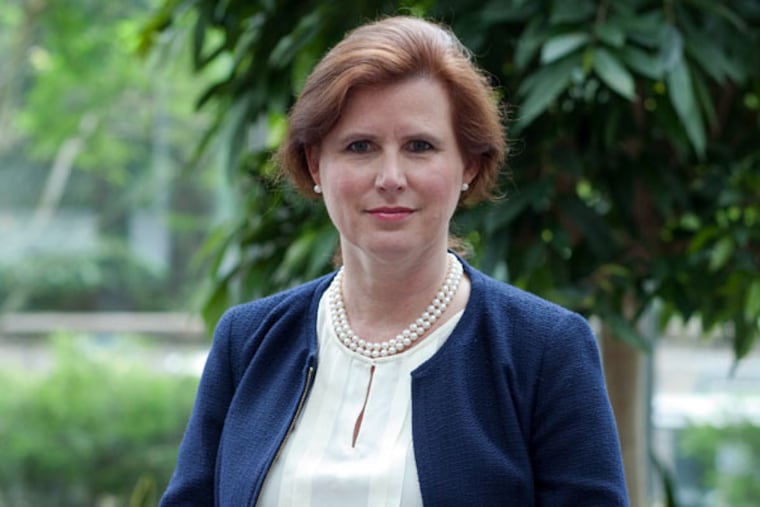Area medical group gets a bonus for cutting costs
The Delaware Valley ACO, a group of five health systems and 450 primary care doctors that is participating in Medicare's new accountable care organization payment model, got good news recently.

The Delaware Valley ACO, a group of five health systems and 450 primary care doctors that is participating in Medicare's new accountable care organization payment model, got good news recently.
The Centers for Medicare & Medicaid Services (CMS), which operates Medicare, announced late Tuesday that it is giving the local group a $6.6 million reward for lowering costs last year.
This puts DVACO, the largest such group in the region, near the top of its class. Only 19 percent of accountable care organizations that entered the market in 2014 received rewards or "shared savings" payments.
"Obviously, we're really excited about this, but we're not resting on our laurels," said Katherine Schneider, DVACO's president and CEO. The organization has been growing rapidly, she said, and now provides care to 65,000 patients, almost twice as many as last year.
CMS said that the nation's 353 accountable care organizations - groups of medical providers that agree to work together to deliver coordinated care - had generated net savings of $411 million. If they also meet quality standards, providers get a check for half of the money they save, Schneider said. Medicare keeps the rest of the savings.
The report said that organizations tend to perform better over time. Thirty-seven percent of ACOs that entered the program in 2012 generated shared savings as did 27 percent of those who started in 2013.
The new payment approach is part of the government's effort to move away from rewarding health care providers primarily for the volume of work they do - the current "fee for service" system - and toward "value" measures that reward efficiency and quality, Schneider said.
In the ACO program, the government evaluates providers on everything from patient satisfaction to avoidable admissions.
Delaware Valley ACO achieved most of its savings last year by reducing inpatient hospital and nursing home stays.
Accountable care organization members are paid on a fee-for-service basis, which, Schneider admits, means some could suffer when patients receive less, or less expensive, care. But she said the ACO is positioning itself for where the health system is heading.
"From a strictly business point of view, as long as fee-for-service is the dominant [payment system], you should just run as fast as you can on that fee-for-service treadmill," she said, "but that's not a good strategy for the community."
Delaware Valley ACO includes Main Line Health, Jefferson University and Hospitals, Holy Redeemer Health System, Doylestown Health, and Magee Rehab. Doylestown was not part of the 2014 report.
Last year the ACO had about 225 primary care physicians. There are now 450, and 600 are expected to participate next year when Abington Hospital, part of the Jefferson system, comes on board.
DVACO itself will receive 30 percent of the Medicare reward. Another 30 percent will go to its hospitals and the remaining 40 percent to participating physicians.
Two other area ACOs - VirtuaCare and LHS Health Network, which is affiliated with the Lourdes Health System - did not earn shared savings payments, according to the report.
Mathew Mathew, medical director of Mercy Accountable Care, said Mercy Health System of Southeast Pennsylvania has been part of LHS for the last two years, but has applied to go out on its own in 2016.
Health systems have to move toward the new payment approach, even if it does not lead to immediate benefits, he said. "We are not looking at the short term," he said. "We are looking at the future."
215-854-4944
@StaceyABurling